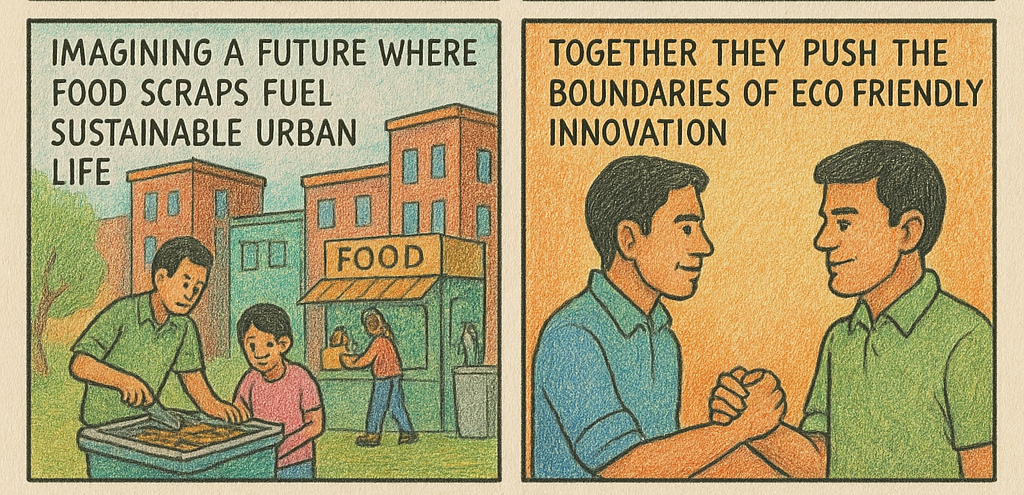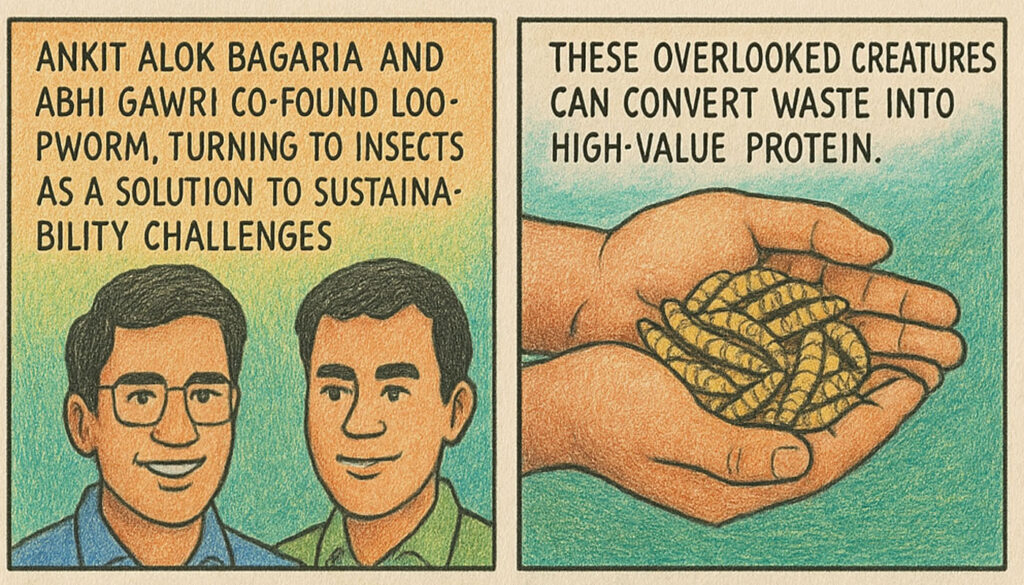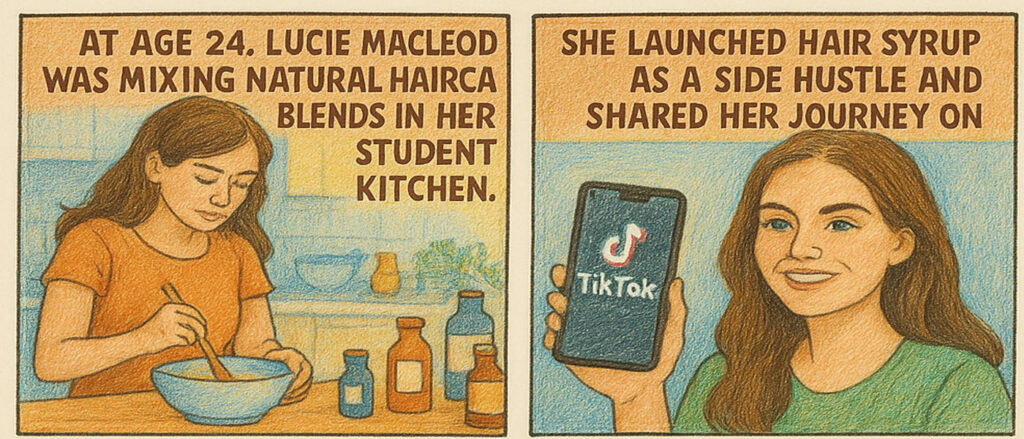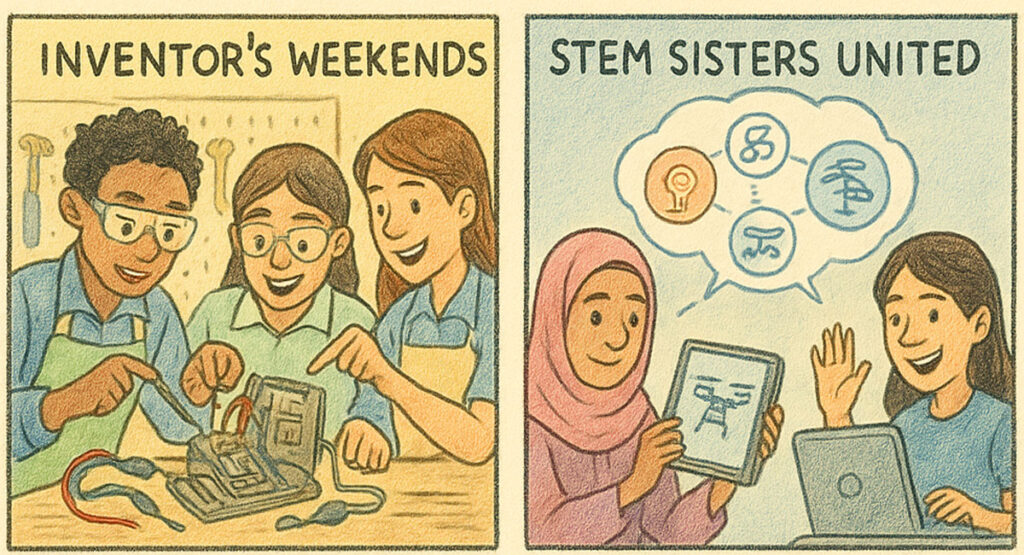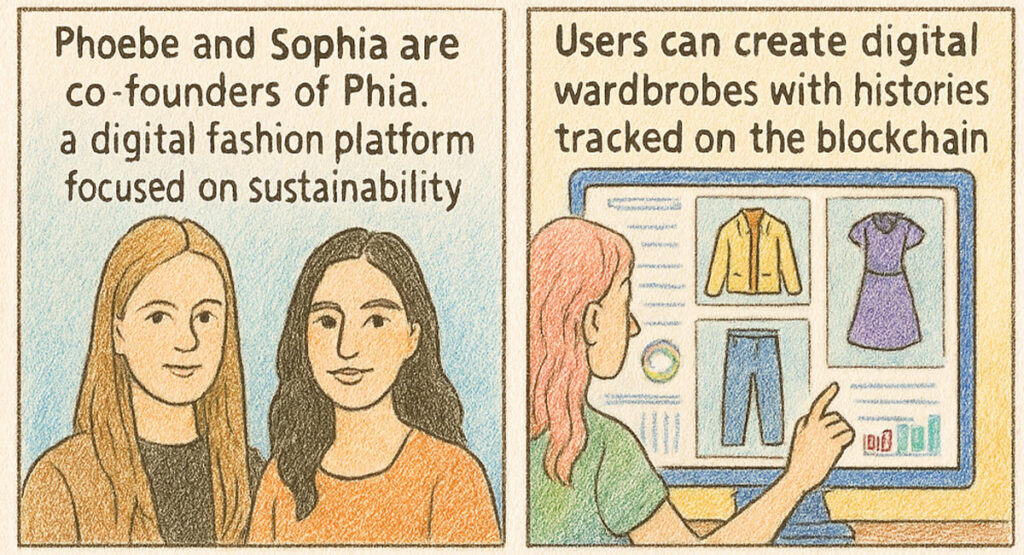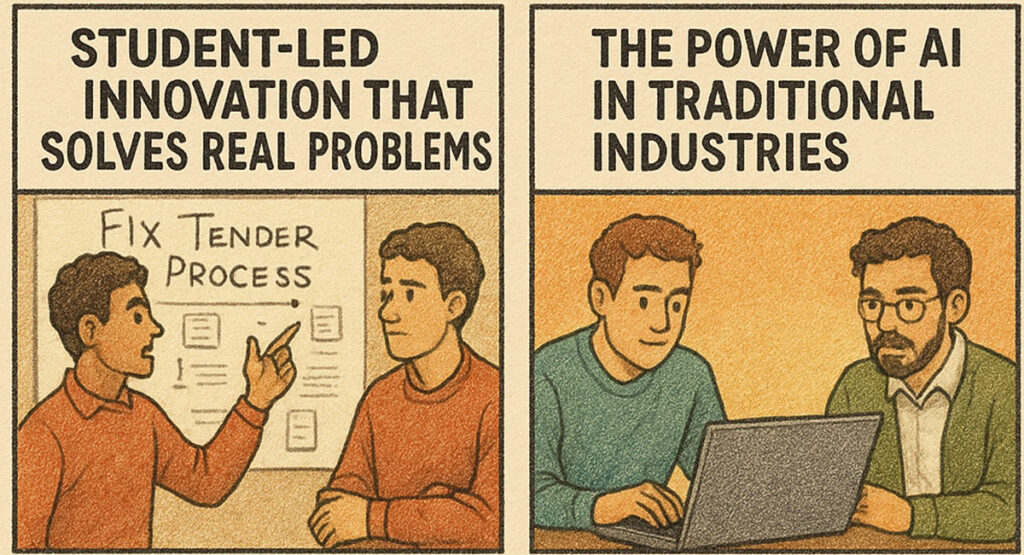Ankit Alok Bagaria and Abhi Gawri are not just co-founders of Loopworm—they are pioneers leading a revolution from the ground up, literally. What began as a classroom curiosity grew into a mission to transform how the world feeds itself. At the heart of their biotech startup is a radical yet ancient idea: insects, nature’s original recyclers, can be the key to sustainable protein for the future.
Ankit and Abhi crossed paths in college, where their shared passion for environmental sustainability and cutting-edge innovation brought them together. While others looked to technology for digital revolutions, these two visionaries looked to nature for biological solutions. They noticed an alarming gap—rising demand for protein and the unsustainable pressure it was putting on agriculture, water resources, and the planet. That’s when the idea struck: what if we could produce protein without exhausting the Earth?
Thus, Loopworm was born—an enterprise built around the idea of using insect larvae to convert bio-waste into high-value protein and nutrients. At the core of their operations are black soldier fly larvae, tiny creatures with a mighty purpose. Fed on food waste and agri-residue, these larvae rapidly grow, converting waste into rich protein for animal feed, aquaculture, and even bio-fertilizers. The name “Loopworm” is no accident—it’s about closing the loop, turning waste into wealth, and rewriting the story of sustainability.
Their journey was anything but easy. While most biotech founders chase lab breakthroughs, Ankit and Abhi spent months working in sheds, testing larval growth conditions, fine-tuning feeding compositions, and building vertical farms with grit and recycled materials. They didn’t just wear the founder hat—they wore gloves, boots, and carried buckets of organic waste to learn by doing. They embraced failures as lessons, turning each obstacle into an opportunity for growth. Where many would walk away, they dug deeper.
The Loopworm model soon caught attention—not just because it was environmentally powerful, but because it was scalable. With every kilogram of insect protein they produced, they also reduced methane emissions, preserved farmland, and prevented tons of food waste from ending up in landfills. Investors, researchers, and sustainability advocates took note. They were not just running a startup; they were shaping the future of protein, one larva at a time.
Ankit, with his infectious energy and love for experimentation, became the face of the startup’s bold vision. He combined a scientist’s curiosity with an entrepreneur’s hunger. Abhi, the quiet strategist, brought the technical discipline and systems thinking that transformed ideas into processes, processes into products, and products into purpose-driven revenue.
Together, they built a team of passionate engineers, entomologists, and food technologists. Their factory floors don’t echo with machines alone—they hum with innovation and the belief that change doesn’t come from imitation, but invention.
Their achievements go far beyond sales and headlines. They have created a circular economy model that empowers farmers, reduces ecological footprints, and introduces a new frontier in food technology. Through Loopworm, they’ve proven that nature can be an ally in industry—not something to dominate, but something to collaborate with.
What sets Ankit and Abhi apart is their unwavering optimism. Where others see waste, they see potential. Where others see limits, they see loops. They are not just biotech entrepreneurs—they are environmental architects, reshaping the foundation of how food is made and waste is managed. Their story inspires young changemakers to look beyond convention, to find business models in biology, and to believe that saving the planet and building a successful company are not opposing goals—they’re one and the same.
And so, the Loopworm legacy continues to grow—larva by larva, loop by loop, led by two visionaries who dared to feed the future with nature’s tiniest workers and humanity’s biggest hopes.
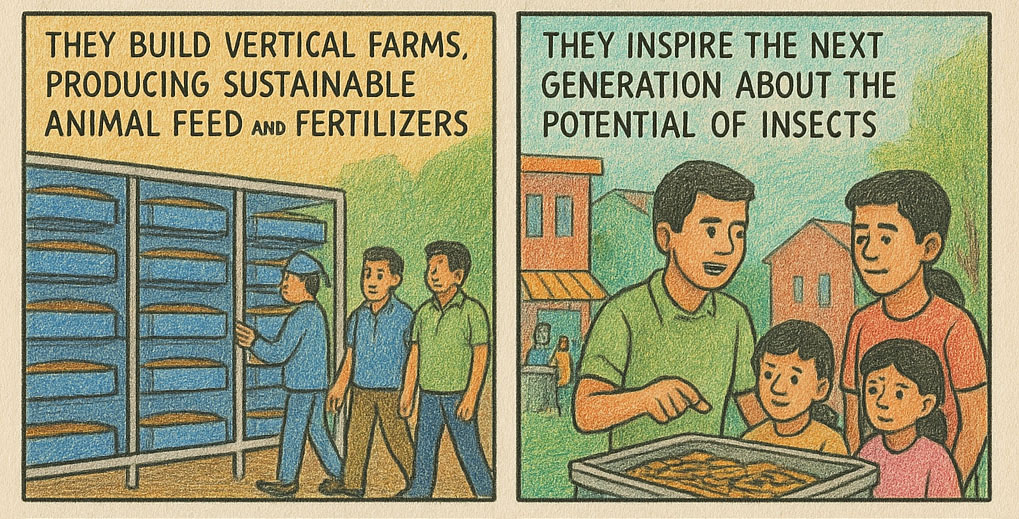
Ankit Alok Bagaria and Abhi Gawri are building more than just a company—they’re cultivating a movement. Their journey with Loopworm has now evolved beyond protein production. It has become a mission to redefine how we think about waste, food, and the delicate balance between humans and the environment.
One of the most inspiring aspects of their journey is how they’ve turned an overlooked problem into a national opportunity. India produces millions of tons of agri-waste and food scraps every year—much of it rots, emitting harmful gases and clogging landfills. But through their innovation, Ankit and Abhi have shown that this isn’t waste—it’s raw material for the future. Insect larvae become miniature factories, converting that discarded organic matter into something powerful, valuable, and life-sustaining. What was once a byproduct becomes a backbone of circular industry.
They’ve also opened up new income avenues for rural communities and micro-entrepreneurs. Instead of relying on centralized mega-farms, Loopworm’s modular system allows smaller operators to cultivate larvae locally. With training and minimal equipment, these community partners can now build livelihoods through bio-conversion, supplying insect biomass back to the Loopworm network. This is entrepreneurship with heart—it uplifts entire ecosystems, both human and environmental.
Ankit and Abhi also promote education in bio-innovation. They regularly mentor students and host hands-on workshops, encouraging the next generation to explore the untapped potential of insects, bio-waste, and low-cost sustainable technologies. For them, the classroom isn’t just a memory—it’s a living lab, where future leaders are born with boots on the ground and ideas in their hands.
In their pilot programs, they’ve explored integrating Loopworm systems into urban food chains and smart cities, transforming food court waste into insect protein on-site. Imagine a world where restaurants fuel a self-sustaining cycle—food scraps feed larvae, larvae feed chickens, chickens serve diners, and the cycle begins again. It’s a living ecosystem—efficient, profitable, and stunningly natural.
They’ve also entered conversations around alternative food futures. Could insect protein someday be part of the human diet? Not in some distant sci-fi future, but in nutritious bars, baked goods, or high-protein snacks designed for athletes and explorers. It’s not about force—it’s about choice, science, and sustainability. And they’re laying the groundwork with thoughtful R&D, creative branding, and global perspectives.
Abhi and Ankit’s partnership also sends a powerful message: complementary skills and shared vision can move mountains. One brings the fire of invention, the other the calm of implementation. Together, they form a rhythm that is rare—a harmony of intellect, passion, and purpose.
Their journey is not linear, and it’s not complete. They’re now looking at carbon credits, decentralized organic waste management units, school nutrition programs, and animal welfare impacts—expanding their vision from insects to impact. Every wing that flutters in a Loopworm farm carries within it a ripple of change—small, steady, unstoppable.
Their dream? A world where waste is never wasted, where food is grown responsibly, and where humanity partners with nature not out of necessity, but out of respect. In a time when the planet seeks answers, Loopworm offers one born from the soil, shaped by science, and powered by two young minds who simply refused to believe that “small” couldn’t be revolutionary.
